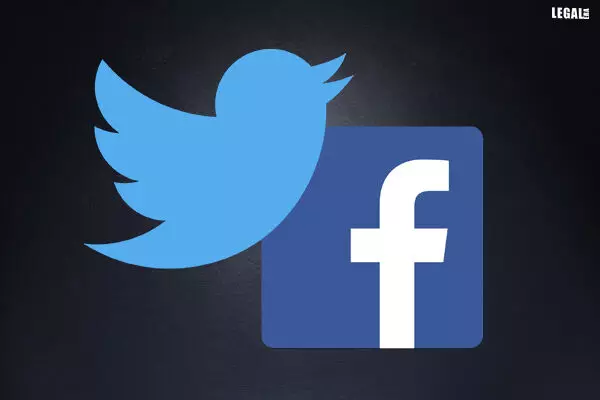- Home
- News
- Articles+
- Aerospace
- Artificial Intelligence
- Agriculture
- Alternate Dispute Resolution
- Arbitration & Mediation
- Banking and Finance
- Bankruptcy
- Book Review
- Bribery & Corruption
- Commercial Litigation
- Competition Law
- Conference Reports
- Consumer Products
- Contract
- Corporate Governance
- Corporate Law
- Covid-19
- Cryptocurrency
- Cybersecurity
- Data Protection
- Defence
- Digital Economy
- E-commerce
- Employment Law
- Energy and Natural Resources
- Entertainment and Sports Law
- Environmental Law
- Environmental, Social, and Governance
- Foreign Direct Investment
- Food and Beverage
- Gaming
- Health Care
- IBC Diaries
- In Focus
- Inclusion & Diversity
- Insurance Law
- Intellectual Property
- International Law
- IP & Tech Era
- Know the Law
- Labour Laws
- Law & Policy and Regulation
- Litigation
- Litigation Funding
- Manufacturing
- Mergers & Acquisitions
- NFTs
- Privacy
- Private Equity
- Project Finance
- Real Estate
- Risk and Compliance
- Student Corner
- Take On Board
- Tax
- Technology Media and Telecom
- Tributes
- Viewpoint
- Zoom In
- Law Firms
- In-House
- Rankings
- E-Magazine
- Legal Era TV
- Events
- Middle East
- Africa
- News
- Articles
- Aerospace
- Artificial Intelligence
- Agriculture
- Alternate Dispute Resolution
- Arbitration & Mediation
- Banking and Finance
- Bankruptcy
- Book Review
- Bribery & Corruption
- Commercial Litigation
- Competition Law
- Conference Reports
- Consumer Products
- Contract
- Corporate Governance
- Corporate Law
- Covid-19
- Cryptocurrency
- Cybersecurity
- Data Protection
- Defence
- Digital Economy
- E-commerce
- Employment Law
- Energy and Natural Resources
- Entertainment and Sports Law
- Environmental Law
- Environmental, Social, and Governance
- Foreign Direct Investment
- Food and Beverage
- Gaming
- Health Care
- IBC Diaries
- In Focus
- Inclusion & Diversity
- Insurance Law
- Intellectual Property
- International Law
- IP & Tech Era
- Know the Law
- Labour Laws
- Law & Policy and Regulation
- Litigation
- Litigation Funding
- Manufacturing
- Mergers & Acquisitions
- NFTs
- Privacy
- Private Equity
- Project Finance
- Real Estate
- Risk and Compliance
- Student Corner
- Take On Board
- Tax
- Technology Media and Telecom
- Tributes
- Viewpoint
- Zoom In
- Law Firms
- In-House
- Rankings
- E-Magazine
- Legal Era TV
- Events
- Middle East
- Africa
Delhi High Court sends notice to Twitter and Meta

Delhi High Court sends notice to Twitter and Meta
The Central government had challenged the suspension of its social media account
The Delhi High Court has issued a notice to Twitter and Meta Platforms (the parent company of Instagram) and the Government of India on a petition challenging the decision of the social media intermediaries to disable/suspend the account of the right-wing's political satire handle, Wokeflix.
The bench comprising Justice V Kameswar Rao issued the notice, providing two weeks time to the respondents for filing their responses.
In its plea, filed through advocate Mukesh Sharma and argued by advocate Raghav Awasthi, Wokeflix had said that in November 2021, Instagram had removed one of its stories. Later that day, it disabled the handle on the pretext that it had hate speech content.
Wokeflix argued, "It is strange that in both cases, whether it be the removal of story or disabling of the account; it was done without any prior notification or affording any opportunity to the petitioner of being heard."
A few days later, the Instagram account was restored.
The plea stated that Twitter took a similar decision on March 1, 2022, when the handle was suspended without giving the petitioner the opportunity of being heard.
Wokeflix claimed, "Meta Platform and Twitter perform a public function and also enjoy a virtual duopoly when it comes to dissemination of information at the behest of the respondent on the medium of the Internet. They are violative of various provisions of the Constitution of India including Articles 14, 19 and 21, as it is an impairment of the right to free speech and is arbitrary. Furthermore, there is no provision under which the content can be edited or modified before the transmission suo-motu by an intermediary.
The plea further contended that Twitter and Meta qualified as 'State' for the purpose of Article 12 of the Constitution. Also, writs could be issued to them under Article 226.
Appearing on behalf of Twitter, senior advocate Sajan Poovayya questioned the maintainability of the petition qua the intermediaries. He argued that the social media intermediaries could not be counted as 'authority' within the meaning of Article 12.
Meanwhile, the court has asked the counsel to file a response, including on the maintainability of the petition. The case has been listed for hearing at the end of the month.



